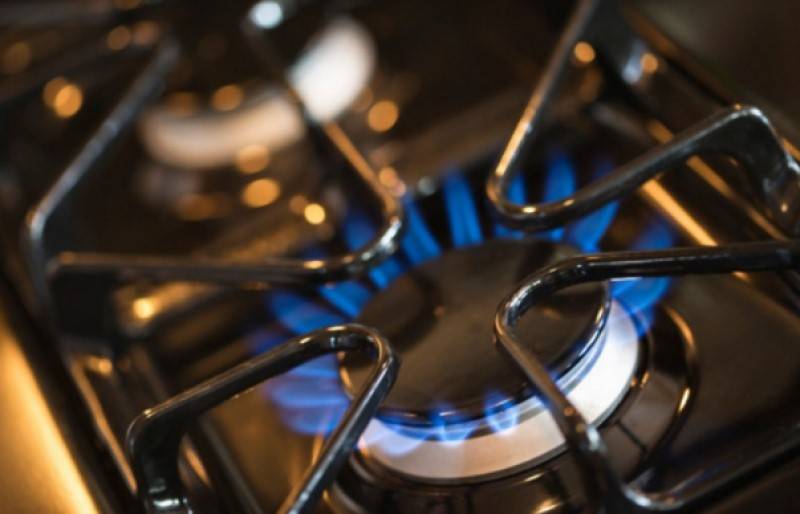

- EDITIONS:
 Spanish News Today
Spanish News Today
 Murcia Today
Murcia Today
 Alicante Today
Alicante Today
Tax on natural gas rises from April 1
The IVA tax on gas rises from 10 to 21% starting Monday as the Government revises the regulated rate downwards due to the fall in price
 Natural gas bills go up again starting this Monday April 1. With the end of the heating season and the arrival of spring has also come a new increase in IVA (equivalent to VAT in the UK), which goes from the reduced rate of 10% to the ordinary rate of 21%, as a result of the withdrawal of energy aid introduced to tackle the 2022 crisis that the Government approved at the end of last year. The increase will be less pronounced for households that have contracted the last resort rate (TUR), the regulated rate, which has been revised downwards until June 30 due to the fact that the price of gas in the market has fallen compared to to last quarter. Tax on electricity will remain at 21% due to the drop in the price of electricity.
Natural gas bills go up again starting this Monday April 1. With the end of the heating season and the arrival of spring has also come a new increase in IVA (equivalent to VAT in the UK), which goes from the reduced rate of 10% to the ordinary rate of 21%, as a result of the withdrawal of energy aid introduced to tackle the 2022 crisis that the Government approved at the end of last year. The increase will be less pronounced for households that have contracted the last resort rate (TUR), the regulated rate, which has been revised downwards until June 30 due to the fact that the price of gas in the market has fallen compared to to last quarter. Tax on electricity will remain at 21% due to the drop in the price of electricity.
The cost of the fixed term remains the same but that of the variable term is decreasing. For example, it is 0.72 cents per month for TUR 1, the one that most Spanish households have with a regulated rate.
This increase in the IVA on gas is the second increase since the end of last year and has its origin in the Government's plan to gradually withdraw the tax aid that it approved in 2022 to help households and companies face the gas price crisis. For a year and a half, gas was taxed with a super-reduced VAT of 5% and on January 1 it rose to the reduced rate of 10% temporarily because the Government stipulated a new increase in IVA, to place it now at the ordinary rate of 21% prior to the energy crisis as of April 1, once the winter season is over, in which households spend more due to heating.
This increase in gas IVA will be noticed by all contracts – in the free or regulated market – although those who have contracted the TUR will experience a drop. This is due to the quarterly review that the Government has just carried out for the period from April 1 to June 30, given the fluctuation in the price of gas in the wholesale market.
The Government reviews the regulated gas rate, the TUR, every three months – in January, April, July and October – and whenever there is a 2% variation, upward or downward, in its price in the wholesale market. However, a possible increase will also remain limited in this second quarter, until June 30, because until then another aid measure to combat the energy crisis will remain in force, which limits the increase in the cost of raw materials (that is, gas) to 15%. In this case, however, it will be a measure that is not applied as there has been a downward revision, and not an upward one.
The price of gas for regulated market contracts therefore falls slightly in this second quarter, a period in which the cost of the fixed term remains the same as in the previous quarter, but the variable term, linked to consumption, falls. Thus, the fixed term for TUR 1 (for consumption less than or equal to 5,000kWh/year) will continue to be 3.85 euros per customer per month; for TUR 2 (consumption greater than 5,000kWh/year and less than or equal to 15,000kWh/year), 7.12 euros, and for TUR 3 (consumption greater than 15,000kWh/year and less than or equal to 50,000kWh/year). year), 14.92 euros.
The variation -downward- occurs in the variable term. If in the last quarter it was 5.11 cents for each kilowatt/h for TUR 1, now it will be 4.39 cents. That of TUR 2 drops from 4.81 cents/kWh to 4.09, and that of TUR 3, from 4.54 cents to 3.82.
The quarter beginning now will be the last of the existence of the so-called neighbourhood TUR, which the Government also created in 2022 to provide a discount on gas to neighbourhood communities with a central boiler that committed to moving to a system of individual meters. For this TUR 4, the fixed gas term between April and June will be 42.70 euros per customer per month and 4.07 cents/kWh as a variable term (4.78 between January and March 2023), which will rise to 5 .08 cents in the case of communities that have increased their historical consumption.
All these prices are without taxes, which, as in the free market, will also rise starting this Monday, when TUR gas will be taxed with a VAT of 21% instead of 10% as in the last year and a half.
VAT on electricity remains at 21%
For its part, the VAT on electricity will remain at 21% during the month of April, because the average price during March remained below 45 euros/Mwh. Looking ahead to April, the month begins this Monday with historically low prices. For three hours, between 2pm and 5pm, the price per megawatt/hour on the wholesale market will be -0.01 euros, that is, negative. This record is mainly due to Storm Nelson, which has left a lot of rain and, above all, wind for the renewables to work at full capacity. They are two of the cheapest ways to generate energy and cause prices to plummet.
On the other hand, and despite the exception in this time slot, the effect on the general rise in prices has not been long in coming and the rise in inflation to 3.2% in this month of March is largely explained due to the increase in the price, via tax, of electricity.
In this case, the increase in IVA – from the super-reduced 5% it was at last year – was going to be slower than in the case of natural gas with a rise to 10% in January that would remain until the end of this year. year, but as long as a condition that already occurred last March and is currently maintained did not occur, that the price of electricity did not fall below 45 euros/Mwh on a monthly average. If this happened, the IVA would also rise from the 10% stipulated in principle for 2024 to the ordinary rate of 21%, with the possibility of falling again to 10% if, conversely, the price of electricity rises again above the average of 45 euros.
This is what happened last month and it will remain for now. In March the VAT rose to 21% because the average price of electricity in February was about 42 euros/Mwh. In March it was even cheaper, with an average that is expected to close March at half. Before Easter began – two holidays and another two weekends in which the price drops due to less economic activity – the average price of 22.9 euros/Mwh for the first 27 days of March, a month in which the price of electricity only exceeded 45 euros/Mwh in four days and in which it was below 10 euros in eleven days, in three of which it did not exceed a daily average of one euro.
With these figures, the IVA on electricity will remain at 21%, with an unequal effect depending on whether consumers have contracts in the free or regulated market. The latter will be able to compensate for the tax increase with prices that are at rock bottom, with many hours of electricity at zero euros, and which will be directly reflected in their bill. Households with a free market contract, with a fixed price per MWh and for a period that is usually one year, will notice the increase in VAT but not the daily and hourly reduction in electricity costs, because they have longer-term contracts. which are generally not being reviewed. This circumstance already raised criticism last month, when last month raised criticism from the electricity sector, which denounces what it calls a "tax lottery" and a "barrier to the electrification" of the economy.
staff.inc.and
Sign up for the Spanish News Today Editors Roundup Weekly Bulletin and get an email with all the week’s news straight to your inbox
Special offer: Subscribe now for 25% off (36.95 euros for 48 Bulletins)
OR
you can sign up to our FREE weekly roundup!
Read some of our recent bulletins:
25% Discount Special Offer subscription:
36.95€ for 48 Editor’s Weekly News Roundup bulletins!
Please CLICK THE BUTTON to subscribe.
(List price 3 months 12 Bulletins)
Read more stories from around Spain:





















